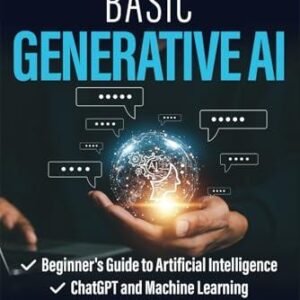In an era defined by technological advancements, the hospitality industry stands at the forefront of change, continually seeking innovative ways to enhance guest experiences and streamline operations. Artificial Intelligence (AI) has emerged as a transformative force, reshaping how hotels, restaurants, and travel services engage with their customers. From personalized recommendations to automated customer service solutions, AI is not just a tool; it’s a game-changer that is revolutionizing every facet of the hospitality landscape. As travelers increasingly demand seamless, tailored experiences, the integration of AI technologies is proving essential for businesses aiming to stay competitive and relevant. In this article, we will explore the profound impact of AI on hospitality services, highlighting emerging trends, real-world applications, and the potential for future developments that promise to redefine the way we travel. Join us as we delve into this exciting intersection of innovation and customer service, uncovering the ways AI is setting the stage for a new era in hospitality.
Table of Contents
- Leveraging AI for Personalized Guest Experiences
- Enhancing Operational Efficiency through AI Automation
- AI-Driven Solutions for Smarter Pricing and Revenue Management
- Future Trends: Preparing for AI Integration in Hospitality Services
- To Wrap It Up
Leveraging AI for Personalized Guest Experiences
In the modern era of hospitality, artificial intelligence plays a pivotal role in crafting tailored guest experiences that truly resonate. Hotels and service providers are increasingly harnessing AI to predict the preferences and needs of their guests, allowing them to offer personalized services that enhance satisfaction and loyalty. For instance, AI-powered chatbots can engage in real-time conversations with guests, assisting with everything from booking modifications to providing personalized recommendations based on previous stays. These interactions not only improve efficiency but also create a more engaging atmosphere for the guest, making them feel valued and understood.
Moreover, the utilization of AI extends beyond mere communication; it involves sophisticated data analysis that uncovers valuable insights into guest behavior. By leveraging machine learning algorithms, hospitality businesses can analyze booking patterns, guest feedback, and social media interactions, enabling them to curate customized packages and experiences that align with individual preferences. The result is a dynamic approach to service delivery, where guests can benefit from tailored offers, such as room upgrades or exclusive access to amenities during their stay. This proactive engagement not only boosts operational efficiency but also encourages repeat visits, fostering a deeper relationship between customers and establishments.
Enhancing Operational Efficiency through AI Automation
Incorporating AI automation into hospitality services is revolutionizing the way operations are managed, resulting in notable enhancements in efficiency. By leveraging AI technologies, hotels and travel companies can streamline numerous processes, from check-in procedures to inventory management. This automation not only minimizes human error but also frees up staff to focus on delivering personalized guest experiences. Here are some key areas where AI is making a significant impact:
- Self-Service Kiosks: Allow guests to check in and out quickly without waiting in long lines.
- Chatbots: Provide 24/7 customer service for common inquiries, reducing the workload on hotel staff.
- Smart Pricing: Adjusts rates automatically based on demand and occupancy levels, optimizing revenue.
Additionally, the utilization of AI-driven analytics enables businesses to gain deep insights into customer behavior and operational efficiency. By analyzing data collected from various touchpoints, hospitality providers can identify trends and make informed decisions that enhance service delivery. This intelligence can inform strategies such as:
| Strategy | Description |
|---|---|
| Personalized Marketing | Target offers based on individual guest preferences. |
| Resource Allocation | Optimize staff schedules according to predicted demand. |
| Operational Cost Management | Monitor expenses and identify areas for savings. |
AI-Driven Solutions for Smarter Pricing and Revenue Management
The integration of artificial intelligence in pricing and revenue management is redefining how hospitality businesses optimize their offerings. By leveraging advanced algorithms, hotels can analyze vast amounts of data to identify pricing trends and demand patterns, leading to more informed decision-making. This AI-driven approach not only enhances dynamic pricing strategies but also helps businesses respond swiftly to market fluctuations. Key benefits include:
- Real-time adjustments: Automatic price shifts based on factors like demand, seasonality, and competitor strategies.
- Enhanced guest targeting: Using data insights to tailor promotions and discounts to specific customer segments.
- Increased revenue predictability: Utilizing historical trends to forecast future occupancy and revenue potential.
Furthermore, AI tools enable hospitality providers to refine their inventory management by predicting which room types will be in demand. In doing so, they can optimize room distribution and minimize unsold inventory. To illustrate the impact, consider the following comparison:
| Traditional Method | AI-Driven Approach |
|---|---|
| Static pricing based on manual review | Dynamic pricing adjusted in real-time |
| General promotions for all guests | Personalized offers based on guest behavior |
| Slow reaction to market changes | Immediate adjustments based on live data |
Future Trends: Preparing for AI Integration in Hospitality Services
As we look ahead, the hospitality industry must embrace the inevitable integration of artificial intelligence to remain competitive and responsive to guest needs. Anticipating this shift involves a proactive approach that includes investing in advanced technologies and staff training. Key areas to focus on are:
- Personalized Guest Experiences: Implementing AI-powered systems to gather and analyze data can enhance customer interactions by tailoring services to individual preferences.
- Operational Efficiency: Leveraging AI for back-office tasks, such as inventory management and scheduling, can streamline operations and allow staff to focus on guest engagement.
- Predictive Analytics: Utilizing AI to forecast trends and demands will help businesses optimize pricing, staffing, and marketing strategies.
Moreover, forward-thinking hotels and resorts are already experimenting with robotic concierges, virtual assistants, and AI-driven customer service platforms. This transition not only enhances the customer experience but also minimizes human error and operational costs. As the landscape evolves, hospitality brands must develop a robust strategy that includes:
- Collaboration with Tech Partners: Working with technology providers to implement AI solutions tailored to specific hospitality needs.
- Ethical Considerations: Addressing privacy and data security concerns that arise with AI integration, ensuring guest trust is maintained.
- Continuous Training: Investing in ongoing training for staff to ensure they are equipped to utilize AI tools effectively.
To Wrap It Up
As we journey through the ever-evolving landscape of travel, the impact of AI on hospitality services cannot be overstated. From personalized guest experiences to efficient operational management, artificial intelligence is revolutionizing how we explore and engage with the world around us.
As we’ve explored in this article, the integration of AI technologies not only enhances the guest experience but also empowers hospitality providers to operate smarter, leaner, and more sustainably. The future of travel is bright, with AI leading the charge toward innovation and improved service delivery.
As travelers, we can look forward to a more seamless, tailored experience that meets our unique needs, while hospitality professionals can leverage these advancements to offer unparalleled service and build lasting connections with their customers.
In this transformative era, it’s clear that embracing AI is not just an option; it’s a necessity for those looking to thrive in the competitive travel landscape. We invite you to stay curious, explore these innovations, and embark on your next adventure equipped with the knowledge of how AI is reshaping the way we travel. Thank you for reading, and here’s to a more intelligent and enjoyable journey ahead!





